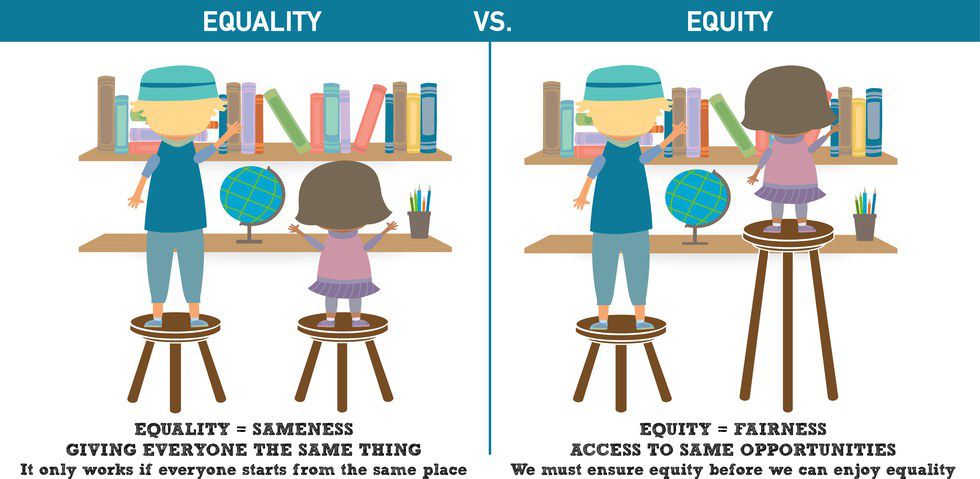As a foreword: Because I am as white as they come and I enjoy the privilege of being seen as white, I can't say what is racist and what isn't (in the U.S.). What I can do is listen to people who are deeply affected by racism in the United States and believe them.
It is sometimes hard to be honest with yourself and admit that you might have racist beliefs or thoughts - even if they are hidden very deep in your childhood or any other place. Media plays a big role in portraying certain roles in society and as we slowly start to learn to be more critical to media, we also have to learn to be more critical of our own thoughts.
I get it: You don't think you're a racist. Still, there are some thoughts prevalent in our society that sometimes result in micro-aggression or "unwilling" racism. If we take a look at history, it becomes pretty clear that we don't have a balanced system that gives everyone equal opportunities or even promotes equity.
I know it’s uncomfortable to talk about race issues; any subject that requires us to step out of our comfort zone and honest to god speak to someone about a different point of view. If that view is your opinion or not, you need to be able to argue with someone without feeling defensive or uncomfortable or being afraid of being called out. Of course, this person should respect you as well and listen to your opinions in an open manner and without judgment. It’s a give and take.
It is so easy to throw the line: “and if I say my opinion, they just gonna call me a racist. They are not going to listen to me anyways,” and then stay within your comfort zone of your ideas without feedback or new perspectives.
Listen.
I urge you to look deep within yourself and just be open to this.
If your fear of being called a racist prevents you from seeking out new opinions and perspectives, you decline yourself the opportunity to grow and maybe learn something new (Any -ist is included in this).
As a side note: Just because someone might call you a racist doesn’t mean it’s necessarily true. You have the right to accept that label or not. Other’s opinions of you don’t define you. Still, sometimes we need to take a deep breath and evaluate if those opinions might be true.
Denying conversations or sharing your views because you fear of being called out (maybe rightfully so, or you would seek out that conversation), is honestly such a disservice to yourself.
As humans, we have the tendency only to listen to arguments that further our biases and ideas. But that happens because we tend to hold our opinions close to us a la “This opinion defines me.”
This is where the philosophical side of me rears it's beautiful head:
An opinion is never you, it might reflect how you think about something, but it doesn’t define you (On the other side, what you think of yourself is crucial).
You can change an opinion about a topic any time. Honestly, if someone wants to hold you accountable for how you changed your opinion from yesterday to now, you can always say: “I reserve myself the right to change my mind with new perspectives I’ve gained.”
The ability to let go of an opinion and considering a new one is called growth and speaks of an intelligent mind that is self-aware and critical.
For that to happen, you need to adopt a mindset of: Don’t feel attacked when someone differs from your opinion.
See those conversations as a discussion to figure out the best compromise, not as a competition who is right or who is wrong. In those debates, there is seldom a right or wrong, but a matter of perspectives and consideration of values one holds true for themselves.
Sometimes you might find out that you think the same way as someone else, but have never seen your opinion in that light. You might find out something new about yourself. Other times, you might not change your perspective on a matter (and that is okay, too), but have found new insights and might have gained a new friend.
Lastly, there is so much that can be added onto this. It is never about blaming another person, but finding the middle ground and being able to live in a compromise with other people.
Don’t deny yourself the opportunity to grow because of fear.
Seek out conversations that make you uncomfortable, be open minded that when someone differs from your opinion or frowns upon a worldview, it doesn’t mean they attack you, and try to see debates as finding a compromise instead of arguments you need to win.




















